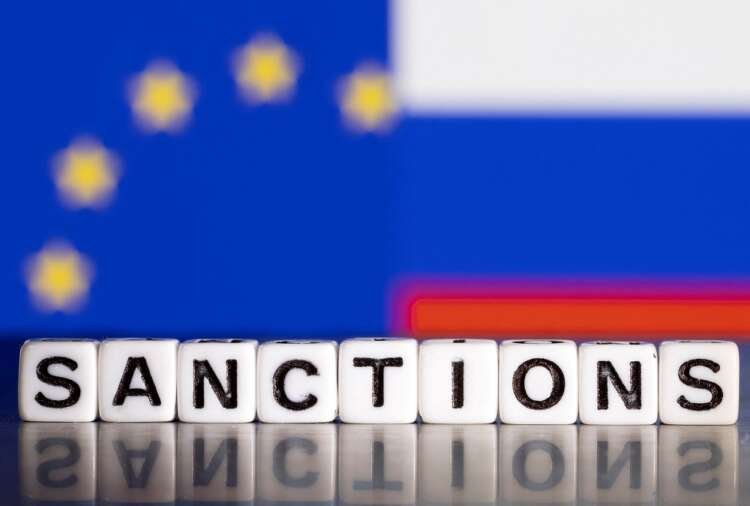Factbox-EU’s 6th sanctions package against Russia, including oil


By Jan Strupczewski
BRUSSELS (Reuters) – EU countries have reached agreement on their sixth package of sanctions against Russia over its invasion of Ukraine, including a complete import ban on all Russian seaborne crude oil and petroleum products in six to eight months.
Below are the main elements of the package:
OIL EMBARGO
The EU will stop buying all Russian crude oil delivered by sea – or 2/3 of all EU imports of Russian crude – from early December, and will ban all Russian refined products two months later.
Deliveries of Russian crude via the Druzhba pipeline, which runs through Poland, Germany, Hungary, Slovakia and the Czech Republic, will be exempt from the embargo for an indefinite time, but Poland and Germany have said they would stop using the pipeline by year end, bringing the reduction of Russian oil imports into the EU to 90% by end-2022.
In 2021, the EU imported 48 billion euros ($51 billion) worth of crude oil and 23 billion euros of refined products from Russia.
Russian crude is much cheaper than Brent, so for the sake of fairness, Hungary, Slovakia and the Czech Republic, which will continue to buy Russian crude, will not be able to re-sell it, or refined products they make from it, to any other EU country.
OTHER EXEMPTIONS
Because of its geographical location, Bulgaria will be allowed to import Russian crude and refined products by sea until the end of 2024. Croatia will be able to buy until the end of 2023 Russian vacuum gas oil for its refinery.
INSURANCE
To make it difficult for Russia to re-direct its oil tankers to other buyers in the world, the EU, together with Britain and other G7 countries, is blocking the insurance and re-insurance of ships carrying Russian oil by EU firms. New insurance contracts are banned immediately and existing ones will be phased out over six months.
Tankers without insurance are not allowed into most major ports because of the risk of cargo loss and litigation in case of oil spills
Many major insurance companies in the shipping business are either European or, in case of groups of insurers and re-insurers, include European firms, so the ban is likely to be effective, as it was for Iranian oil in 2012.
BANKS AND SERVICES
The EU is disconnecting Russia’s biggest bank Sberbank from the SWIFT messaging system as well as two smaller lenders, Credit Bank of Moscow and Russian Agricultural Bank. The EU is also disconnecting one Belarusian bank.
EU accounting, lobbying, public relations and consultancy companies will not be allowed to provide services to Russian entities. This is coordinated with Britain and other G7 countries, making sure most of the world’s biggest consultancy firms are covered.
MEDIA
The EU is suspending broadcasting permits for three Russian State outlets: Rossiya RTR/RTR Planeta, Rossiya 24/Russia 24, and TV Centre International. Also, EU companies will not be allowed to advertise in these outlets.
EXPORT RESTRICTIONS
The EU has added chemicals that could be used in the process of manufacture of chemical weapons.
INDIVIDUALS AND COMPANIES
The EU package expands the list of individuals and companies facing asset freezes and travel bans associated with Russia’s military-industrial sectors. A full list of names will be available later on Friday or on Saturday. The expansion brings the EU into line with a similar list compiled by the United States.
The list of sanctioned Belarusian entities is increased from one to 25. These are entities related to authorisations for the sale, supply, transfer or export of dual-use goods and technology, as well as goods and technology which might contribute to Belarus’s military and technological enhancement, or to the development of its defence and security sector.
($1 = 0.9321 euros)
(Reporting by Jan Strupczewski; Editing by David Holmes)
Sanctions are penalties or restrictions imposed by one country on another to influence behavior, often related to trade or finance.
Refined products are petroleum products that have been processed and purified, such as gasoline, diesel, and jet fuel.
Asset freezing is a legal measure that prevents individuals or entities from accessing or transferring their financial assets.
Explore more articles in the Top Stories category











